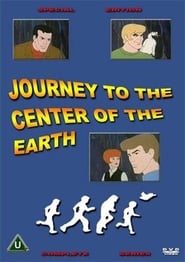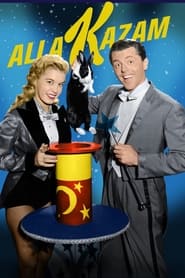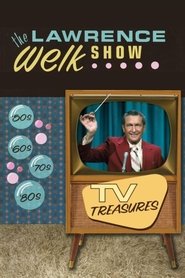Abc TV Series - Page 70
-
Bless This Mess
0000
Bless This Mess
0000
A multi-camera comedy about an overworked stay-at-home mother of three. Anita, like all [TV] moms, is the lone sane voice amongst a sea of insanity. Whether it be her clueless pastor husband Paul; her growing-up-too-fast daughter Libby; her equally clueless son Doug; or her, well, also clueless youngest child Michael, there's just not enough hours in the day to get everything done. -
World News Now
0000
star 8World News Now is an American overnight television news program that is broadcast on ABC during the early morning hours each Monday through Friday. Its tone is often lighthearted, irreverent and humorous. Created by its original executive producer, David Bohrman, a number of well-known news personalities have anchored WNN early in their careers, including original anchors Aaron Brown and Lisa McRee, Thalia Assuras, Kevin Newman, Alison Stewart, Liz Cho, and Anderson Cooper. WNN is divided into an A, B, C, and D-block, featuring different segments. Top news headlines are in the "front of the book" with reports from ABC NewsOne correspondents or repeated reports from the network's evening news program ABC World News. There is a national weather forecast and an often humorous "kicker" story that ends the A-block. The "back of the book" are usually stories from Nightline, BBC reports, or other segments produced in the studio, depending on the day of the week. -
The Adventures of Paddy the Pelican
1950
star 1.5The Adventures of Paddy the Pelican is an animated miniseries that first aired on ABC (US) in 1950. The show is notorious for a variety of factors including its unprofessional voice acting, simplistic animation, and inconsistent appearances of the title character. -
Wanna Bet?
2008
Wanna Bet?
2008
Wanna Bet? is an American game show which aired on ABC. It featured four celebrities making wagers on whether ordinary Americans will be able to complete outrageous stunts. An episode of the show began with four celebrities being given $25,000 to wager on the success or failure of ordinary Americans completing outrageous stunts. Show hosts Ant & Dec introduced a stunt performer and the stunt they claim they will be able to complete, and the celebrities then guess whether the performer will successfully complete the stunt or if they will fail to complete the stunt. The celebrities also lock in the amount of money they'd like to wager on performer's ability to complete the stunt, but the exact amount of the wager is not revealed to the viewing audience. The performer then attempts the stunt, and afterward the celebrities' wagers are revealed and the amount of money earned is totalled. The celebrity with the most money totalled at the end of an episode wins that amount for their favorite charity. Due to poor ratings -
Ozark Jubilee
1955
star 3Ozark Jubilee is the first U.S. network television program to feature country music's top stars, and featured performers located in Springfield, Missouri which has long emulated Nashville, Tennessee as a center of American country music. The weekly live stage show premiered on ABC-TV on January 22, 1955, was renamed Country Music Jubilee on July 6, 1957, and was finally named Jubilee USA on August 2, 1958. Originating "from the heart of the Ozarks," the Saturday night variety series helped popularize country music in America's cities and suburbs, drawing more than nine million viewers. The ABC Radio version was heard by millions more starting in August 1954. A typical program included a mix of vocal and instrumental performances, comedy routines, square dancing and an occasional novelty act. The host was Red Foley, the nation's top country music personality. Big names such as Patsy Cline, Eddy Arnold, Johnny Cash and Faron Young were interspersed with a regular cast, including a group of young talent the Jubilee b -
All-Star Blitz
1985
All-Star Blitz
1985
All-Star Blitz is an American game show that aired on ABC from April 8 to December 20, 1985, with reruns airing on the USA Network from March 31 to December 26, 1986. Peter Marshall was the host and John Harlan was the announcer for the series, which was produced by Merrill Heatter Productions, in association with Peter Marshall Enterprises. -
Journey to the Center of the Earth
1967
star 5.3Journey to the Center of the Earth is an American science fiction animated television series, consisting of 17 episodes, each running 30 minutes. Produced by Filmation in association with 20th Century Fox, it aired from September 9, 1967 to September 6, 1969 on ABC Saturday Morning. It featured the voice of Ted Knight as Professor Lindenbrook. It was later shown in reruns on Sci Fi Channel's Cartoon Quest. It appears to have taken the 1959 film, Journey to the Center of the Earth, as its starting point rather than Jules Verne's original novel, e.g. including the character of Count Saknusssen and Gertrude the duck. However it moved even further away from Verne's novel than the 1959 film. -
About Faces
1960
About Faces
1960
About Faces is an American game show that aired from January 4, 1960 to June 30, 1961 that was created by Ralph Edwards. The host was Ben Alexander and the show's announcer was famed game show host Tom Kennedy. -
Split Second
0000
star 6Split Second is an American television game show which originally aired on ABC from March 20, 1972, to June 27, 1975. The show returned in December 15, 1986 on syndication and ran until September 11, 1987. The show was produced by Stefan Hatos-Monty Hall Productions, and was distributed by Viacom Enterprises in its syndicated season. Tom Kennedy was the host for the original ABC version, with Jack Clark serving as announcer. When the show returned in syndication in 1986, production moved to Toronto and producer and joint creator Monty Hall became the host, with Sandy Hoyt as announcer. -
Make Me Laugh (original)
0000
Make Me Laugh is an American game show in which contestants watched three stand-up comedians performing their acts, one at a time, earning one dollar for every second that they could make it through without laughing. Each comedian got sixty seconds to try to crack the contestant up. -
America's Funniest People
1990
star 10America's Funniest People is an American reality series on ABC that debuted on May 1, 1990 as an hour-long special, and later as a weekly half-hour prime time series from September 8, 1990 to August 28, 1994. It was hosted by Dave Coulier and Arleen Sorkin from 1990 to 1992. Tawny Kitaen replaced Sorkin in 1992. The announcer was Ernie Anderson. Dan Slider composed the theme song, which was performed by Peter Hix. -
The Magic Land of Allakazam
1960
The Magic Land of Allakazam was the name of a groundbreaking series of network television shows featuring American magician Mark Wilson. It ran from 1960 to 1964 and is credited with establishing the credibility of magic as a television entertainment. -
Missing Links
1963
Missing Links
1963
Missing Links is a Goodson-Todman game show hosted by Ed McMahon which originally ran on NBC from September 9, 1963 to March 27, 1964. -
The Challenge
0000
The Challenge
0000
The Challenge is a 1970 made-for-television movie starring Darren McGavin and Mako. Director George McGowan chose to hide his involvement by using the pseudonym Alan Smithee. -
Mike and Maty
1994
Mike and Maty
1994
Mike and Maty was a daytime talk show that aired on ABC from April 11, 1994, to June 7, 1996, replacing The Home Show, a daytime/nighttime informational talk show that aired on ABC from 1988 to 1994. Hosted by Michael Burger and Maty Monfort, the series covered an array of subjects on each episode. Guests included celebrities and authors, as well as cooking, health, beauty and fitness experts. Some shows featured Michael Kearney as a special correspondent. Mike and Maty was replaced by Caryl & Marilyn: Real Friends, a talk show hosted by the comedic duo known as The Mommies, which in turn was canceled after eleven months and replaced in 1997 by The View, which currently occupies the timeslot. -
America This Morning
0000
star 8America This Morning is an American early morning television news program airing on ABC. The newscast is currently anchored by John Muller and Diana Perez, who also serve as anchors of ABC's overnight news program World News Now. Usually airing following World News Now, it features the day's headlines, live reports from Washington, D.C., national weather and airport impact forecasts, a short SportsCenter update from the late night Los Angeles-based anchors of the ESPN show to account for West Coast scores, and a regular business news segment called America's Money. The program is broadcast live at 4:00 a.m. Eastern Time, and is transmitted in a continuous half-hour tape delayed loop until 10:00 a.m. ET, when Good Morning America begins in the Pacific Time Zone. The program usually airs as a lead-in to local morning newscasts on most ABC stations, although in the few markets where the ABC station does not produce a morning newscast, it may air in a two- to three-hour loop immediately before the start of GMA. -
Warner Bros. Presents
0000
Warner Bros. Presents is the umbrella title for three series telecast as part of the 1955-56 season on ABC: Cheyenne, a new Western series that originated on Presents, and two based on classic Warner Bros. films, Casablanca and Kings Row. While neither a critical or popular success, this wheel series is an historically important program. Perhaps most significantly, it is the first television program of any kind made by Warner Brothers. It was also the original home of Cheyenne, the first hour-long television Western series and the first wholly original television series produced by a major Hollywood studio. It also allowed ABC, then a junior player in American television, to secure its first advertising contracts with commercial giants General Electric and tobacco company Liggett & Myers. -
The Lawrence Welk Show (1951)
0000
star 7The Lawrence Welk Show is an American televised musical variety show hosted by big band leader Lawrence Welk. The series aired locally in Los Angeles for four years, then nationally for another 27½ years via the ABC network and first-run syndication. In the years since first-run syndication ended, The Lawrence Welk Show has continued to reach new audiences through repeat episodes, broadcast in the United States by Public Broadcasting Service stations. These airings incorporate an original program—usually, a color broadcast from 1965 through 1982—in its entirety. In place of the commercials, newer performance and interview clips from the original stars and/or a family member of the performers are included; these clips are occasionally updated.




